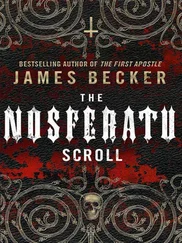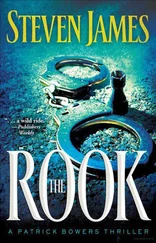James Becker - Echo of the Reich
Здесь есть возможность читать онлайн «James Becker - Echo of the Reich» весь текст электронной книги совершенно бесплатно (целиком полную версию без сокращений). В некоторых случаях можно слушать аудио, скачать через торрент в формате fb2 и присутствует краткое содержание. Жанр: Триллер, на английском языке. Описание произведения, (предисловие) а так же отзывы посетителей доступны на портале библиотеки ЛибКат.
- Название:Echo of the Reich
- Автор:
- Жанр:
- Год:неизвестен
- ISBN:нет данных
- Рейтинг книги:3 / 5. Голосов: 1
-
Избранное:Добавить в избранное
- Отзывы:
-
Ваша оценка:
- 60
- 1
- 2
- 3
- 4
- 5
Echo of the Reich: краткое содержание, описание и аннотация
Предлагаем к чтению аннотацию, описание, краткое содержание или предисловие (зависит от того, что написал сам автор книги «Echo of the Reich»). Если вы не нашли необходимую информацию о книге — напишите в комментариях, мы постараемся отыскать её.
Echo of the Reich — читать онлайн бесплатно полную книгу (весь текст) целиком
Ниже представлен текст книги, разбитый по страницам. Система сохранения места последней прочитанной страницы, позволяет с удобством читать онлайн бесплатно книгу «Echo of the Reich», без необходимости каждый раз заново искать на чём Вы остановились. Поставьте закладку, и сможете в любой момент перейти на страницу, на которой закончили чтение.
Интервал:
Закладка:
“What do you mean? They contracted the work out?” Bronson asked.
Angela shook her head. “No, nothing so civilized. When American troops reached a town named Nordhausen in the Harz Mountains in mid-April nineteen forty-five, they found a concentration camp there named Mittelbau-Dora. The few inmates who were still alive-the vast majority who hadn’t been executed by the Nazis before they left the area had simply starved to death-told the Americans about tunnels in the nearby mountain and a top secret missile factory deep underground where they’d worked as slave laborers of the SS. The American troops were shocked at what they found, but in fact the Allies already knew about it.
“In August nineteen forty-three, after the Royal Air Force bombed Peenemunde, the Nazis had transferred their missile production to Nordhausen. Some ten thousand slave laborers from the Mittelbau-Dora camp were forced to start digging tunnels into the mountain to accommodate the new production lines. For obvious reasons, we don’t know the exact numbers, but it’s been estimated that around three and a half thousand workers died in the first few months from pulmonary diseases, starvation, exhaustion and maltreatment by the SS. Some of them almost certainly simply froze to death.
“In all, the Nazis had allocated an area of about six hundred thousand square meters for the production of the V2 missile, and set a target of one thousand missiles per month, a theoretical output that they thankfully never achieved. We do know that in April nineteen forty-four the factory produced four hundred and fifty missiles, but that was one of their best months ever. Most of the time, production was badly delayed because the German scientists at Peenemunde kept altering the design and making changes. And as a result of that, more than half of the rockets that were assembled were not fully operational and either never reached their intended targets or simply blew up on the launch pads. But the missiles themselves were constructed by specially selected prisoners, who assembled them from some forty-five thousand different components. The sad reality is that most of the V2s that landed on London and caused such destruction to the city were actually built by people-Poles and Jews and others-who we would have considered to be our allies. Of course, they had absolutely no option. If they didn’t do exactly what they were told, they would be summarily executed by the Nazis.”
Bronson didn’t respond for a few moments, as he tried unsuccessfully to imagine what it must have been like to be forced to assemble weapons that you knew, without the slightest shadow of doubt, were going to be used to kill members of the only nation likely to rescue you from imprisonment.
“That’s horrendous,” he said again.
“You know, almost everyone who has read anything about the Second World War knows about the V1 and the V2, but hardly anybody has ever heard of the V3.”
“You’d better include me in that,” Bronson said, “because I’ve never heard of it. What was it? Another type of rocket?”
Angela shook her head. “No. It was something much simpler, but arguably even more dangerous than the other two ‘vengeance’ weapons. It was known to the Germans as the England Cannon or Busy Lizzie, and it consisted of five batteries, each containing twenty-five high-velocity cannons that were designed to fire shells up to one hundred and twenty miles.”
“Jesus,” Bronson muttered. “If they’d ever got that working, from the right location it could have flattened London.”
“It did work and they had the right location. It was a small French village near the English Channel coast named Mimoyecques. Luckily for all of us, the British government found out about it in nineteen forty-four. The Nazis had built an underground facility for the production, and also the operation, of the weapon. But this time, instead of relying on the natural defenses of an existing mountain, they had to build their own mountain, as it were, because the terrain around there is fairly flat. So they constructed a reinforced concrete roof that was five meters thick, and walls that were almost equally massive. On the sixth of July nineteen forty-four, aircraft from 617 Squadron-you’d know them better as the Dambusters-attacked the site with twelve-thousand-pound Tallboy bombs. They were one of the first of what are now called ‘bunker-busters,’ and one bomb went straight through the concrete roof and exploded inside the facility.”
Bronson nodded. “And I suppose that was more or less that,” he said.
“Yes. It was obviously the right decision in the circumstances, and it was a fine piece of precision bombing. What worried the British government at the time, quite apart from the possibility of a constant stream of high-explosive shells landing in and around London, was that they suspected the Nazis might be prepared to fit the shells with chemical or biological payloads. After all, they were very experienced by this time in the use of lethal gases. Zyklon B gas had been supplied to the Buchenwald concentration camp early in nineteen forty, and to Auschwitz in September of the following year. Oddly enough, its principal use was for delousing in an attempt to control the spread of typhus, but fairly soon it started to be used as the principal agent to solve the Nazi’s Jewish problem. The gas had also been used as early as nineteen twenty-nine, but in America, not Germany, for disinfecting freight trains and sanitizing the clothing of Mexican immigrants.
“But Zyklon B wasn’t what the British were worried about, because it only works effectively in a confined and unventilated space, like the Nazi gas chambers. Toward the end of the war, the German chemical company IG Farben moved into another underground facility named Falkenhagen, about ten miles northwest of Frankfurt, near the Polish border. Believe it or not, some of the British records concerning this place are still classified, even today, but it’s fairly clear that the facility was intended to produce a brand-new and much more lethal type of weapon: a nerve gas. This new concoction was named sarin, which can’t be seen, smelled or tasted. The lethal dose is tiny: one droplet on the skin will cause death in about six minutes. Zyklon B was just as lethal, but took up to twenty minutes to do its job. Luckily, the war ended before large-scale production of sarin, or any other of what you might call the ‘new generation’ nerve agents, like tabun, could start.”
Angela looked up from her notes for a moment and stared ahead at the road that was unwinding steadily in front of them.
“Where are we now?” she asked.
Bronson glanced down at the satnav display.
“About halfway there, I suppose,” he replied. “As soon as we see somewhere we like the look of, we’ll stop and buy ourselves some lunch. Right, I think I understand the kind of things that the Nazis were working on toward the end of the Second World War, but I still have no idea about the significance of the ‘lantern bearer.’”
Angela smiled at him, but without any humor in her expression. “Ah, yes,” she said, “the Laternentrager. Now that was something completely different.”
34
25 July 2012
Half an hour after they’d spotted a roadside cafe that looked clean and welcoming, they were back on the road again, and Angela continued telling Bronson what she’d discovered.
“It’s not clear exactly when this particular Nazi project was conceived,” she said, “but from what I’ve been able to find out, it looks as if sometime in mid-nineteen forty-one an unidentified German scientist came up with a theory that was sufficiently interesting, and presumably already sufficiently well-developed, for the Nazi leadership to allocate development funds to it.
Читать дальшеИнтервал:
Закладка:
Похожие книги на «Echo of the Reich»
Представляем Вашему вниманию похожие книги на «Echo of the Reich» списком для выбора. Мы отобрали схожую по названию и смыслу литературу в надежде предоставить читателям больше вариантов отыскать новые, интересные, ещё непрочитанные произведения.
Обсуждение, отзывы о книге «Echo of the Reich» и просто собственные мнения читателей. Оставьте ваши комментарии, напишите, что Вы думаете о произведении, его смысле или главных героях. Укажите что конкретно понравилось, а что нет, и почему Вы так считаете.












